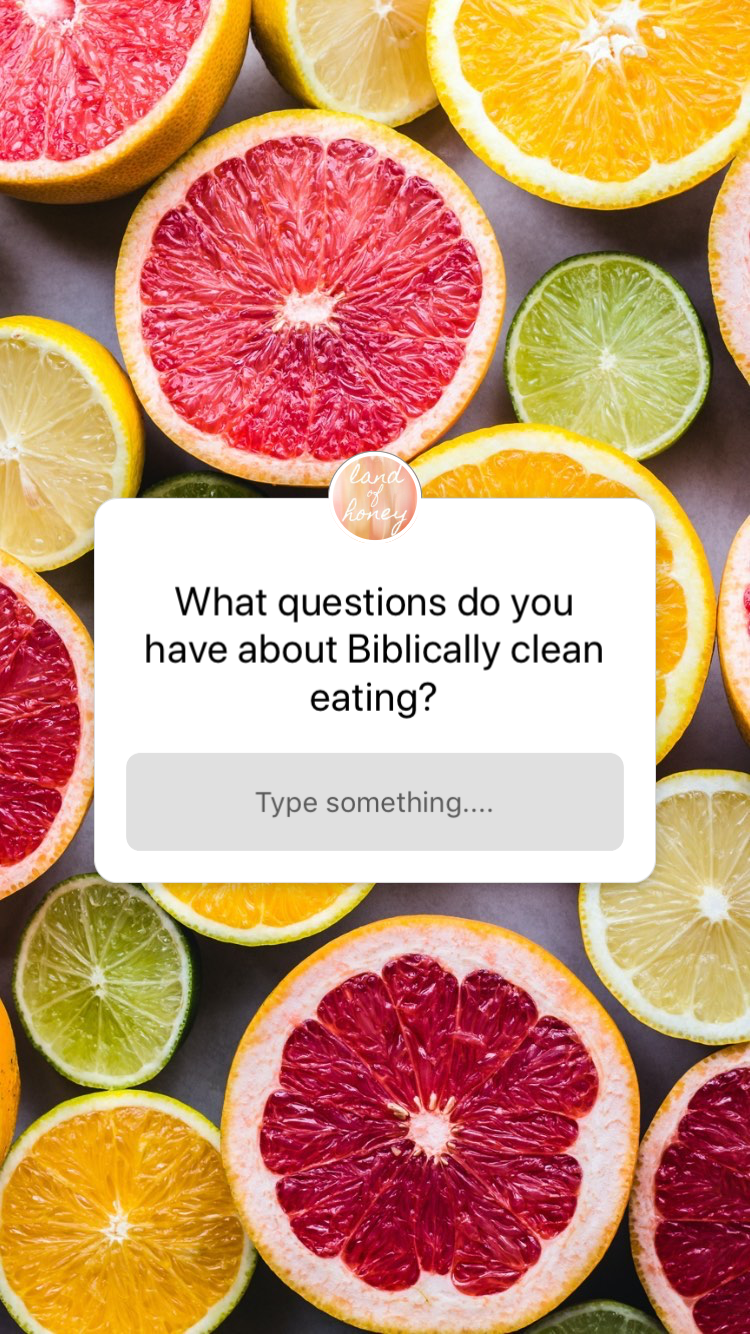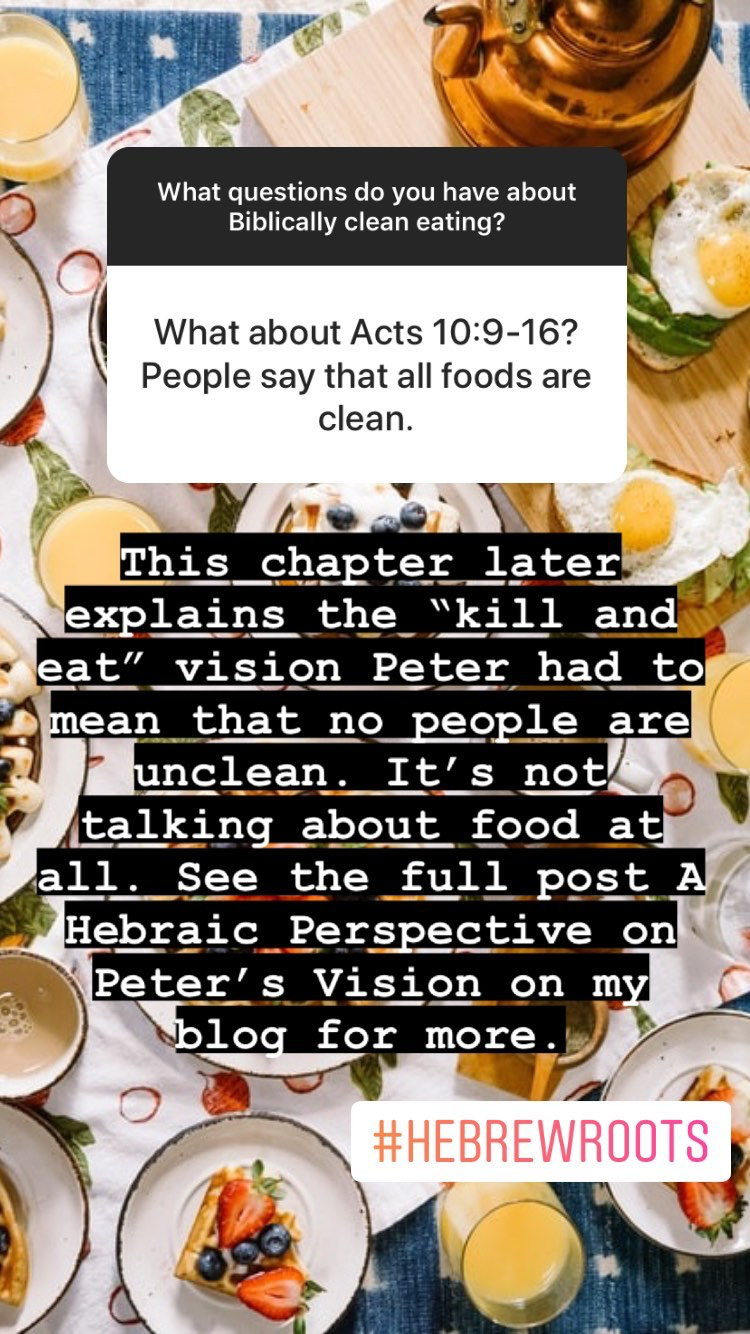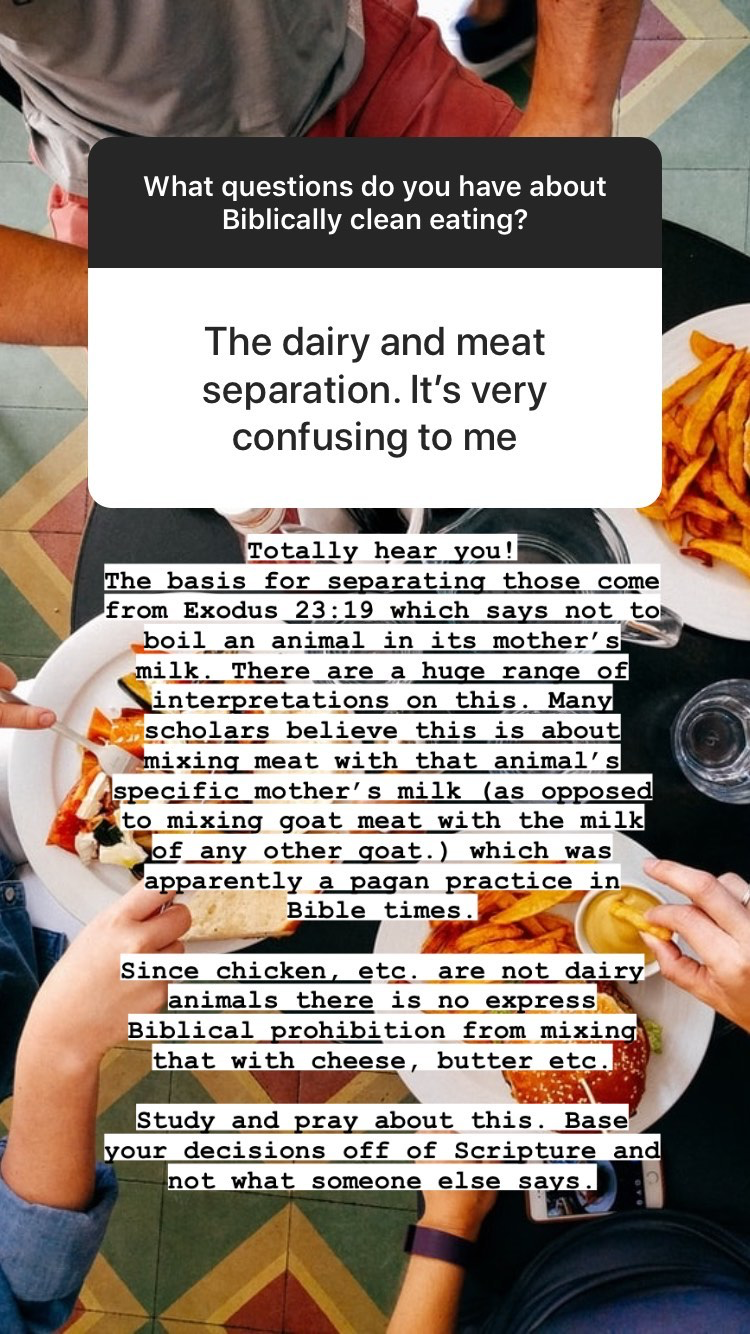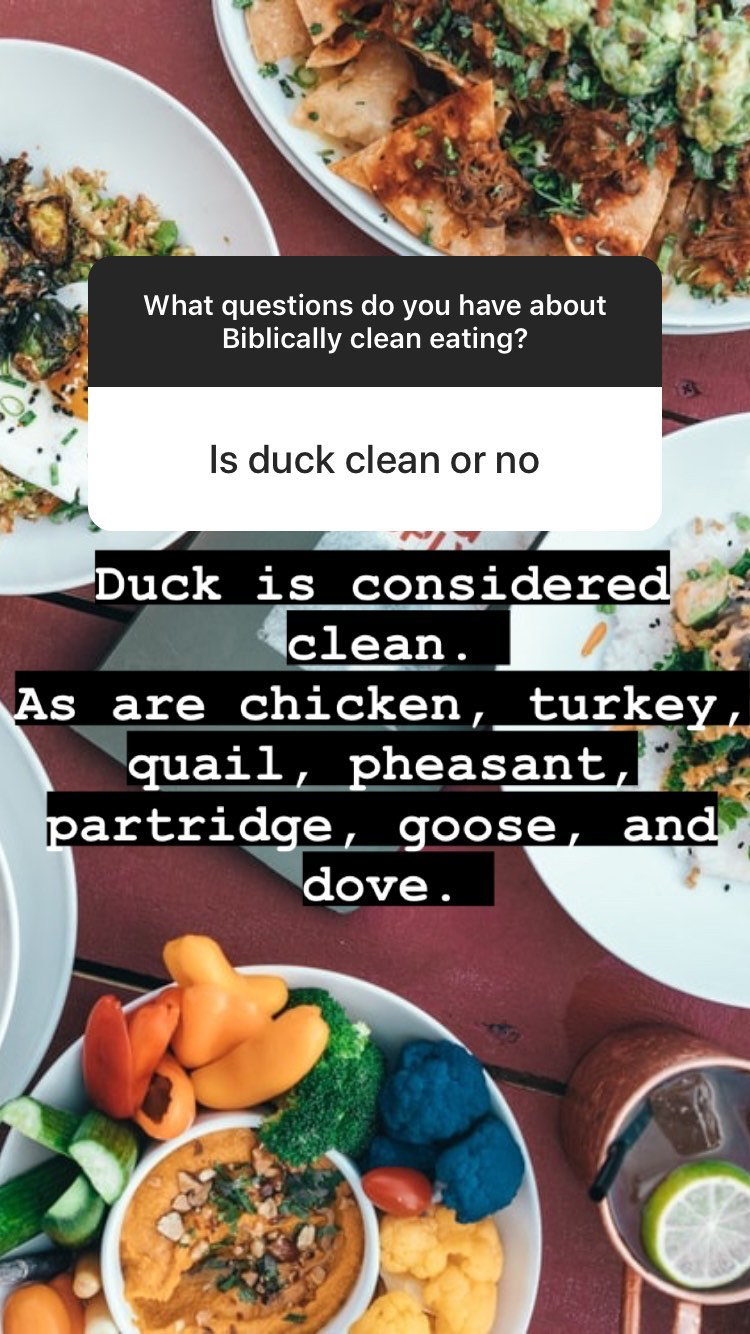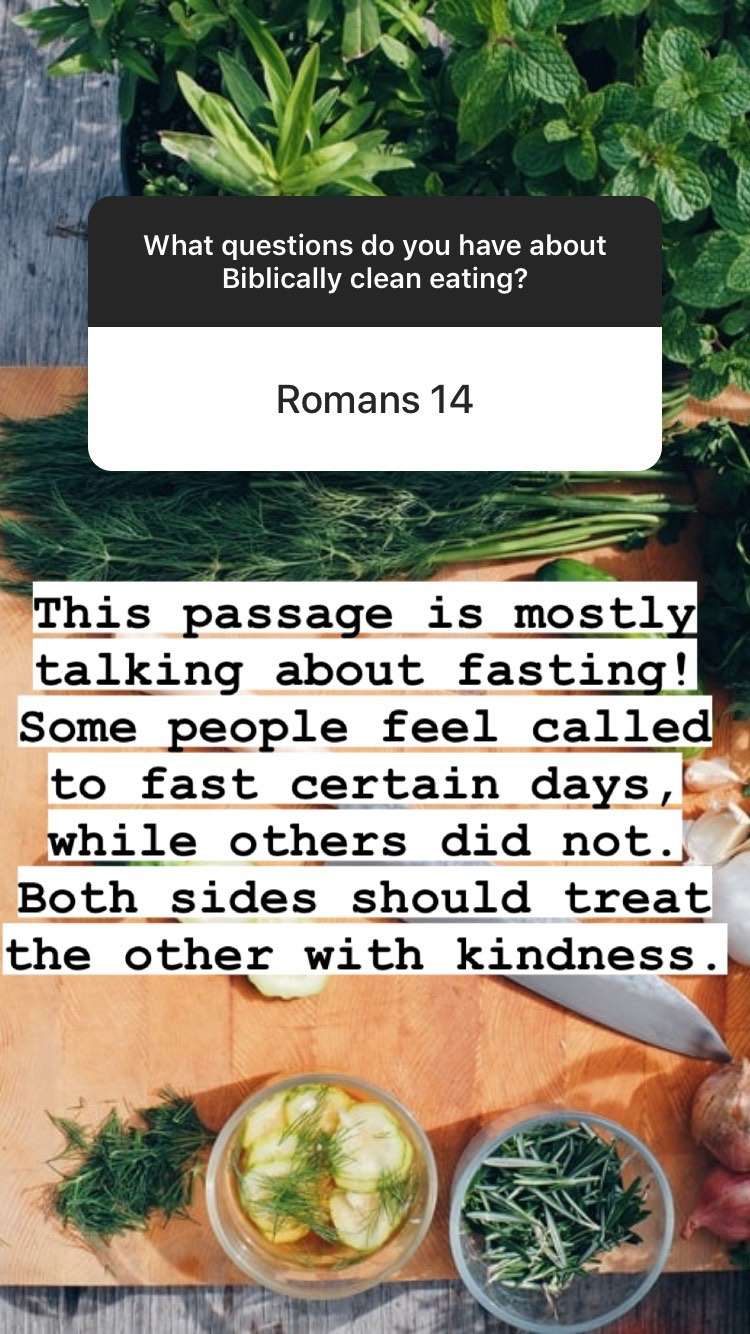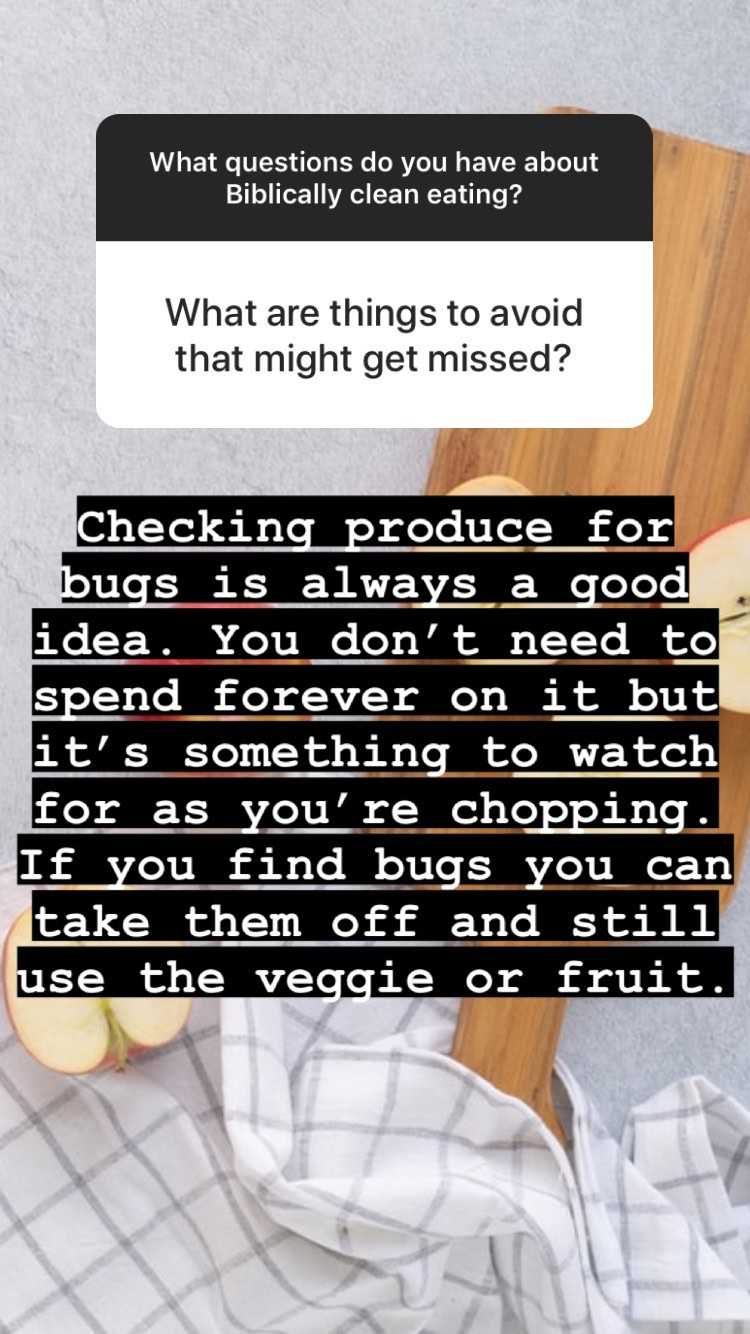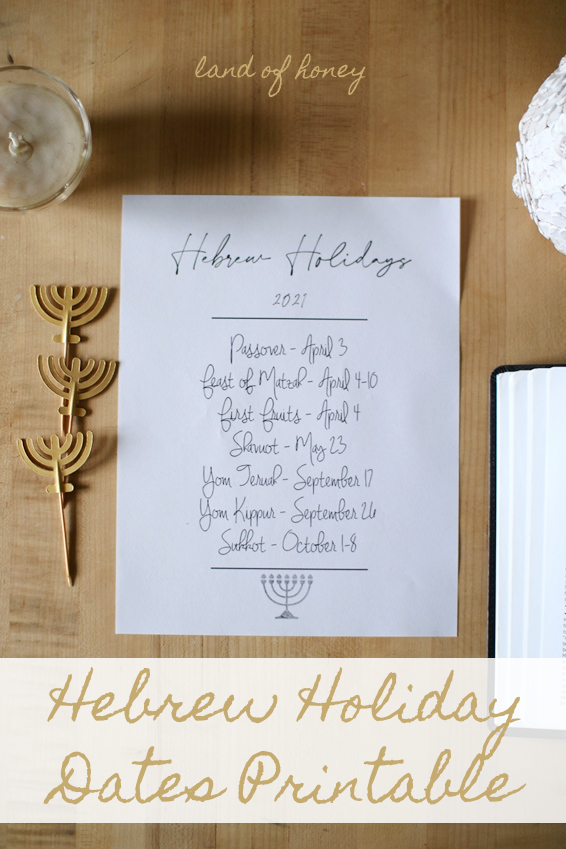This post addresses Acts 15 and the laws that were given to new believers by the Jerusalem Council. I have heard so many people use this passage to say the commandments have been done away with, or that we don't need to bother with the rest of Scripture's instructions as long as we stick to these four things:
"Therefore I judge that we should not trouble those from among the nations who are turning to YHWH, but that we should write to them to abstain from the defilements of idols, and from whoring, and from what is strangled, and from blood." -Acts 15:19-20
So that's all we have to do, right? Just focus on those four things, and don't worry about anything else. The rest of Scripture is really too much trouble, so let's just ignore it. I used to think this verse was giving permission for believers to ignore the Sabbath and set apart times, and eat unclean animals, and things like that. I thought I could do whatever I wanted as long as I wasn't being sexually immoral or didn't eat something that was sacrificed to an idol. I figured as long as I was sticking to that list that was enough. But then I finally read the next verse.
"For from ancient times Moses is read in congregation every Sabbath." -Acts 15:21
Does this verse seem to be a little out of place? What does Scripture reading each week have to do with verses 19 and 20? They are telling others to abstain from idols, whoring, strangled animals, and consuming blood...because on the Sabbath the Bible is read?
And - wait a minute - doesn't the part of the Scripture that's being read give us a lot of other commandments? Including the very commandments that many people believe are no longer valid because of the previous verses?
This is because those four instructions are a starting point, not a list totaling Scripture's instructions for believers. The disciples assumed that anyone coming to the faith would go to congregation each Sabbath and learn more! What are the writings of Moses? The Torah, which includes the bulk of instructions for believers. So by going and listening, these people would slowly learn the word of YHWH and all of Scripture's commandments. So they weren't saying, "this is all there is," but they did say, "here's your starting point - you'll learn the rest as you go."
Seriously, if the disciples thought that the commandments were done away with or not applicable to gentiles, why on earth would they send new believers to learn about them each week? Why would they take the time to teach Scripture's instructions if only those four things were important? That literally makes no sense! That would be like taking a job and your employer training you every single week in the way they used to do business and their old policies. Talk about confusing and a waste of time.
The disciples were giving some basic starting points for people new to the faith. When you're teaching something, you always start with the basics. If you're learning math, you need to start with numbers, counting, and addition before understanding calculus. Focusing on the basics doesn't negate the rest of mathematics. Starting with addition doesn't mean that multiplication or trigonometry aren't valid or valuable. You start with the basics and then continue learning as you go to school.
Scripture is extensive, and there's no way to grasp it all at once. In the book of Acts people from all nations and backgrounds are turning to the faith. Many of these people would have been completely unfamiliar with Scripture. Others were entrenched in idol worship and pagan traditions. The need in verses 19 and 20 to clarify that sexual immorality and idol worship are not okay shows us that many new believers were participating in these things, and even found them acceptable. These practices are wrong, and cause much damage to believers. So Paul, Barnabas, Peter, and other leaders were making a game plan to handle this. They selected a few starting points, and then figured believers would learn more of Scripture's instructions each week when they heard the writings of Moses read. Of course by even bringing up that Scripture is read on the Sabbath day they were showing that they expected new followers to be keeping the Sabbath day.
When we understand this passage to be a starting point when people come into the faith, it fits with the rest of Scripture. We can see that these instructions do not negate the rest of the commandments. In fact the leaders are actually advocating for Sabbath keeping in this very passage! This is not a write-off of the word of YHWH, but rather a place to start when we enter into the faith. We should be encouraged here to consistently study Scripture's instructions so that we can continue to grow in our faith and understanding of how we are to live.
Related posts:
What Does 'No Greater Burdens' in Acts 15 Mean?
On Peter's Vision
The Book of Hebrews
Galatians
.JPG)
.JPG)
.JPG)
